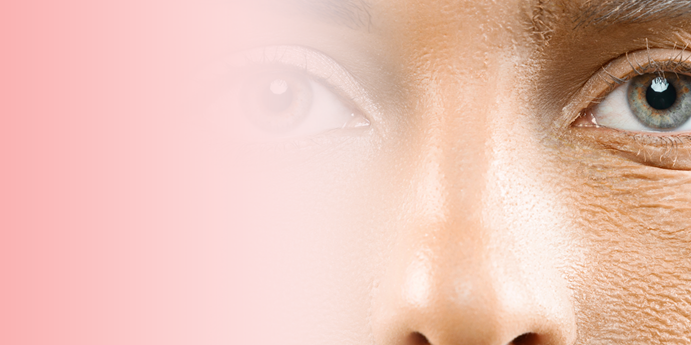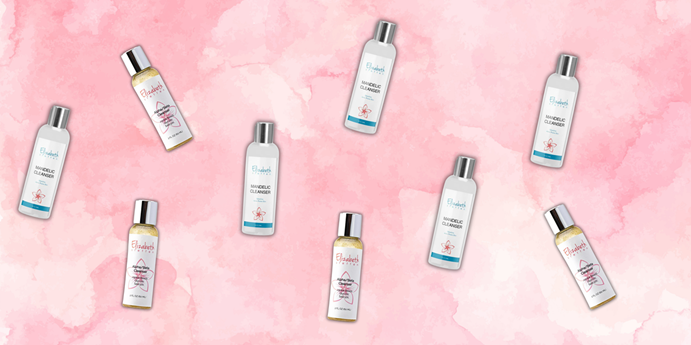
Discover the Best Skincare Ingredients for Aging Skin: Top Picks for a Softer, Smoother Complexion
Understanding Aging Skin
What happens to skin cells as we age
As skin cells lose their ability to regenerate and repair themselves, the visible signs of aging, such as fine lines, wrinkles, and dullness, begin to appear. This natural decline in cellular turnover slows down the skin’s renewal process, leading to a loss of youthful radiance and vibrancy.

Collagen, a crucial protein for maintaining the skin’s structure, diminishes over time, causing sagging, fine lines, and wrinkles.
As skin ages, its natural barrier function weakens, making it more susceptible to dryness, irritation, and environmental damage. A compromised skin barrier struggles to retain moisture and protect against external aggressors, leading to increased sensitivity and discomfort.
Common concerns for skin aging, including uneven skin tone
Fine lines and wrinkles are among the earliest signs of aging, often caused by a decrease in collagen and elastin production, as well as repeated facial expressions. These lines and creases typically appear around the eyes, mouth, and forehead, giving the skin a more aged appearance. Incorporating anti-aging products ingredients like retinol, hyaluronic acid, and antioxidants into your routine can help to smooth fine lines, boost collagen production, and maintain a youthful complexion.

Age spots and dark spots, also known as hyperpigmentation, are common signs of aging caused by sun exposure and the natural aging process. These spots often appear on areas frequently exposed to the sun, such as the face, hands, and shoulders. To reduce their appearance, it’s essential to use products containing ingredients like vitamin C, which help to brighten the skin and prevent further sun damage.
Dull and uneven skin tone can result from factors like aging, sun exposure, and a decrease in cellular turnover. This leads to a lackluster complexion and visible discoloration, making the skin appear tired and aged. To restore radiance and even out skin tone, using exfoliating treatments, vitamin C serums, and brightening masks can help promote a smoother, more glowing complexion.
The loss of skin elasticity and firmness is a hallmark of aging, primarily due to the decline in collagen and elastin production. As these essential proteins diminish, the skin begins to sag and lose its youthful bounce, resulting in a more aged appearance. Incorporating skincare products with peptides, retinoids, and hyaluronic acid can help boost collagen production, improve elasticity, and restore a firmer, more lifted look.

Essential Anti-Aging Ingredients
Vitamin C: Neutralizing damage and lightening dark spots
Vitamin C can boost collagen production and improve skin elasticity, which are essential for maintaining a youthful appearance. Using a vitamin C serum in your skin care routine can help to restore the skin’s bounce and smoothness.
Brightening and evening out skin tone while reducing the appearance of dark spots are key goals for achieving a more radiant complexion. Dark spots and hyperpigmentation can result from sun exposure, aging, and inflammation. Vitamin C is an effective ingredient at targeting discoloration, it can lighten dark spots, and promotes a more uniform skin tone. Regular use of a vitamin C product can help reveal a clearer, more luminous complexion.

Retinol: Speeding up cell turnover and stimulating collagen production
Retinol is a powerhouse ingredient that stimulates collagen production and improves skin elasticity, making it an essential part of any anti-aging skincare routine. By boosting collagen levels, retinol helps to firm the skin and reduce sagging, leading to a smoother and more youthful appearance. Regular use of a retinol serum can significantly enhance skin’s resilience and reduce the visible signs of aging, such as loss of firmness and elasticity.
Retinol also speeds up cell turnover, effectively reducing the appearance of fine lines and wrinkles. As it encourages the shedding of old, damaged skin cells and the growth of new ones, retinol reveals a fresher, smoother complexion. This accelerated renewal process helps to minimize the depth of wrinkles and refine the skin’s texture, making it look more youthful and radiant.
In addition to its anti-aging benefits, retinol is known for unclogging pores and reducing inflammation. By preventing the buildup of dead skin cells, retinol keeps pores clear and reduces the occurrence of breakouts. Its anti-inflammatory properties help to calm redness and irritation, making it an excellent option for those dealing with acne-prone skin. Incorporating retinol into your skincare routine can lead to a clearer, more balanced complexion.

Hyaluronic Acid: Locking in moisture and soothing dry skin
Hyaluronic acid is a highly effective skincare ingredient that attracts and retains moisture in the skin, making it essential for maintaining a hydrated and plump complexion. This powerful humectant helps to replenish moisture levels, ensuring the skin remains hydrated throughout the day.
In addition to its hydrating properties, hyaluronic acid soothes and calms dry, irritated skin. Its gentle, non-irritating formula helps to alleviate redness, itching, and discomfort associated with dehydration and environmental stressors. By creating a protective moisture barrier, hyaluronic acid enhances the skin’s resilience and promotes a calmer, more balanced complexion.

Hyaluronic acid also plays a crucial role in improving skin elasticity and firmness. By deeply hydrating the skin, it helps to plump up fine lines and wrinkles, giving the skin a firmer and more youthful appearance. Regular use of hyaluronic acid can enhance the skin’s natural bounce and improve its overall texture, making it an invaluable component of any anti-aging skincare routine.
Sunscreen and Skin Cancer Prevention
Daily Sunscreen: Protecting skin from UV damage and premature aging
Protecting the skin from UV damage and premature aging is one of the most critical benefits of using sunscreen daily. Harmful UV rays from the sun can cause long-term damage, including sunburn, dark spots, and an increased risk of skin cancer. By forming a protective barrier on the skin, sunscreen helps to block these damaging rays, preventing photoaging, which manifests as wrinkles, fine lines, and loss of elasticity.
Sunscreen plays a vital role in preventing skin cancer by shielding the skin from harmful ultraviolet (UV) radiation. UV rays, particularly UVA and UVB, are known to cause DNA damage in skin cells, which can lead to mutations and the development of skin cancers, including melanoma, basal cell carcinoma, and squamous cell carcinoma. By absorbing, reflecting, or scattering UV radiation, sunscreen reduces the skin’s exposure to these harmful rays, thereby minimizing the risk of DNA damage.

Using a broad spectrum SPF is essential for daily use, even on cloudy days, as up to 80% of UV rays can penetrate through clouds. Consistent application of sunscreen ensures continuous protection against sun damage, regardless of the weather. Adding sunscreen to your skincare routine is an easy and effective way to protect your skin from the harmful effects of UV exposure all year round.



